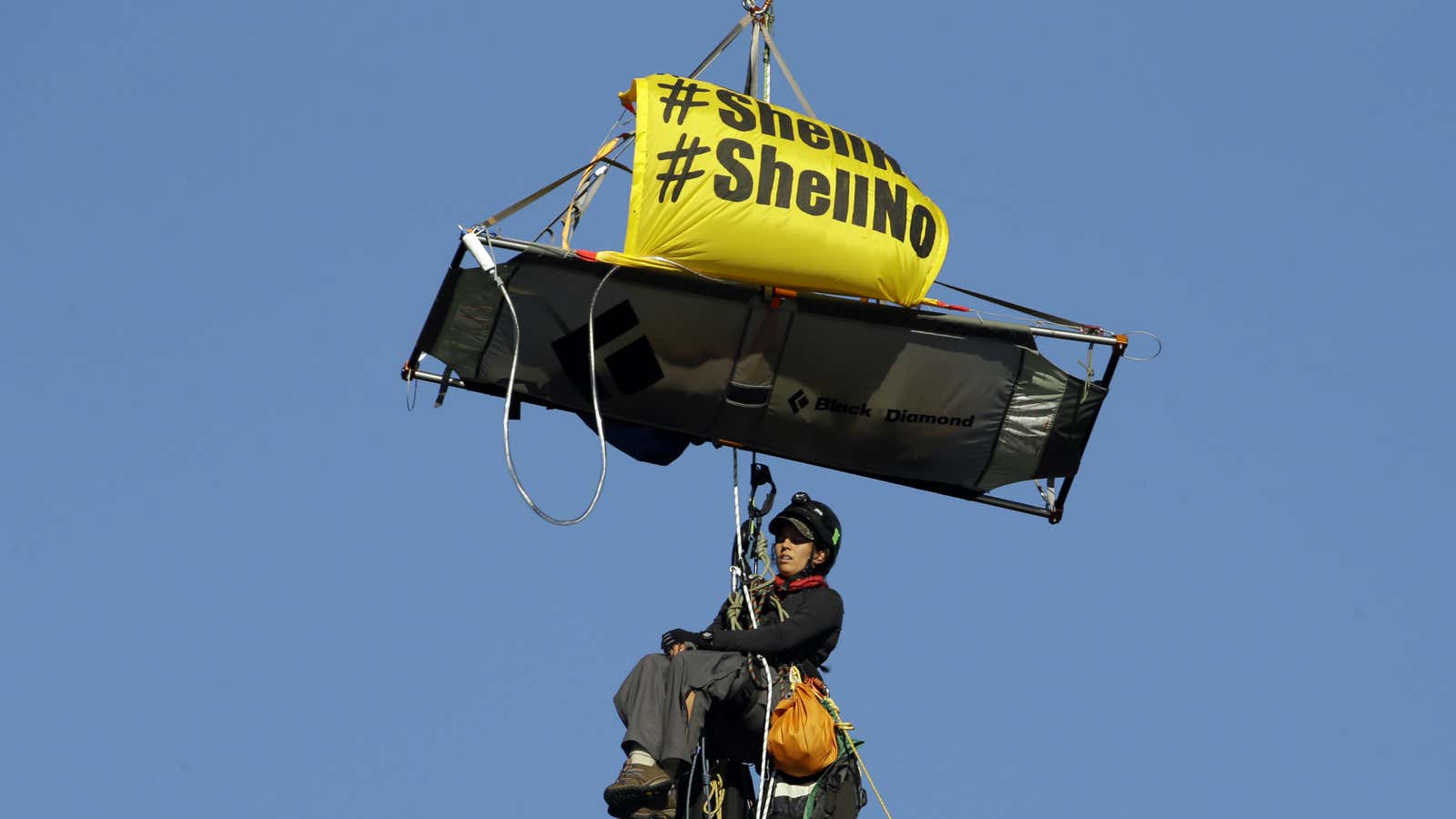After eight years and $7 billion of work, including some humiliating seafaring blunders and the black eye of the environmental spotlight, Shell has abandoned a high-stakes effort to find oil in the Arctic sea near Alaska.
The oil giant appears to have decided that, while global warming is melting a lot of northern ice, thus potentially opening up huge oil reserves, the Arctic is still an extraordinarily tough, risky, and expensive place to work.
The drilling effort in the Chukchi Sea may mark a close to an Arctic oil fever ignited in 2008, when the US Geological Survey issued a report saying that some 13% of the world’s remaining oil lay in the north—perhaps as much as 90 billion barrels of oil. Given that a 1-billion-barrel field is known as a supergiant, and that oil prices at the time were closing in on $100 a barrel, oil companies drooled over the prospects. Climate change even seemed to be co-operating, making the northern sea routes passable to drilling vessels and supply ships.
But a closer look suggested extraordinarily-high costs to drill in the remote north—hundreds and sometimes thousands of miles from the nearest supplies and equipment. The ice was melting, but that did not eliminate the treacherousness of the waters. One by one, oil firms turned away from the north; in 2012, French oil company Total said it was too dangerous (paywall) to drill there.
Geopolitics intervened as well. Almost precisely a year ago, ExxonMobil reported an oil discovery in the Russian Arctic, but it immediately capped the well and went home because of sanctions against Moscow over its invasion of Ukraine.
Through it all, Shell was almost alone in its pursuit of the Arctic, drawn by billions of barrels of potential reserves. Its persistance continued, despite repeatedly losing and smashing up ships and equipment in the roiling sea. Then came the 15-month plunge of oil prices, which caused a plummet in the share prices of all industry players, along with a resolute effort by environmentalists to halt the project.
Finally, Martin Odum, Shell’s executive for the Alaska operations, said today (Sept. 28) that the company found indications of oil, but that it was insufficient to counterbalance a combination of the high costs and stiff US regulation.
